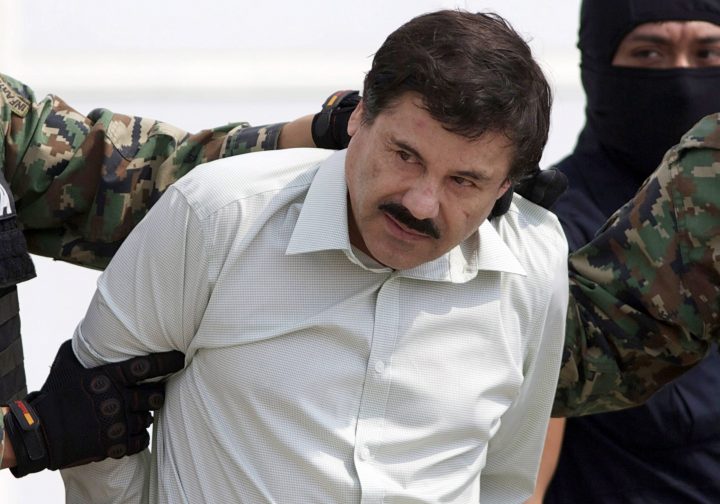U.S. authorities said on Friday they were seeking a court order requiring Mexican drug lord Joaquin “El Chapo” Guzman to forfeit $12.7 billion following his conviction for racketeering and drug trafficking crimes earlier this year.

The sum represents the total amount of cocaine, marijuana and heroin that a jury found Guzman to have trafficked, multiplied by the average prices of those drugs, according to a filing by prosecutors in Brooklyn federal court.
It was not immediately clear what assets, if any, the United States could seize to satisfy the judgment. A spokesman for the prosecutors declined to comment.
“This is largely an academic exercise as the government has never located or identified a penny of this $12.7 billion in proceeds supposedly generated by Mr. Guzman,” said Jeffrey Lichtman, a lawyer for Guzman.
WATCH: Agent who helped take ‘El Chapo’ down speaks about hunt to recapture cartel boss after 2014 escape

Guzman, 62, was convicted on Feb. 12 on all 10 counts he faced, after jurors heard evidence from more than 50 prosecution witnesses, offering an unprecedented look at the inner workings of his Sinaloa Cartel. He faces life in prison at his scheduled July 17 sentencing.

Get daily National news
On Wednesday, U.S. District Judge Brian Cogan denied his motion to set aside the verdict and hold a new trial. Guzman’s lawyers had argued that a new trial was needed after Vice News published an interview with one of the jurors, who said that the jury disobeyed court orders during the case.
Guzman made a name for himself in the 1980s by building cross-border tunnels that allowed him to move cocaine from Mexico into the United States faster than anyone else. He spent much of his career on the run, moving from one hideout to another in the mountains of Sinaloa, guarded by a private army, and twice escaped from maximum-security Mexican prisons.
He was finally captured in January 2016 and extradited to the United States to face trial.
Despite Guzman’s arrest, the Sinaloa Cartel still has the biggest U.S. distribution presence of Mexican cartels, followed by the fast-growing Jalisco New Generation Cartel, according to the U.S. Drug Enforcement Administration.
Together, they are the biggest producers of drugs sold on U.S. streets.







Comments